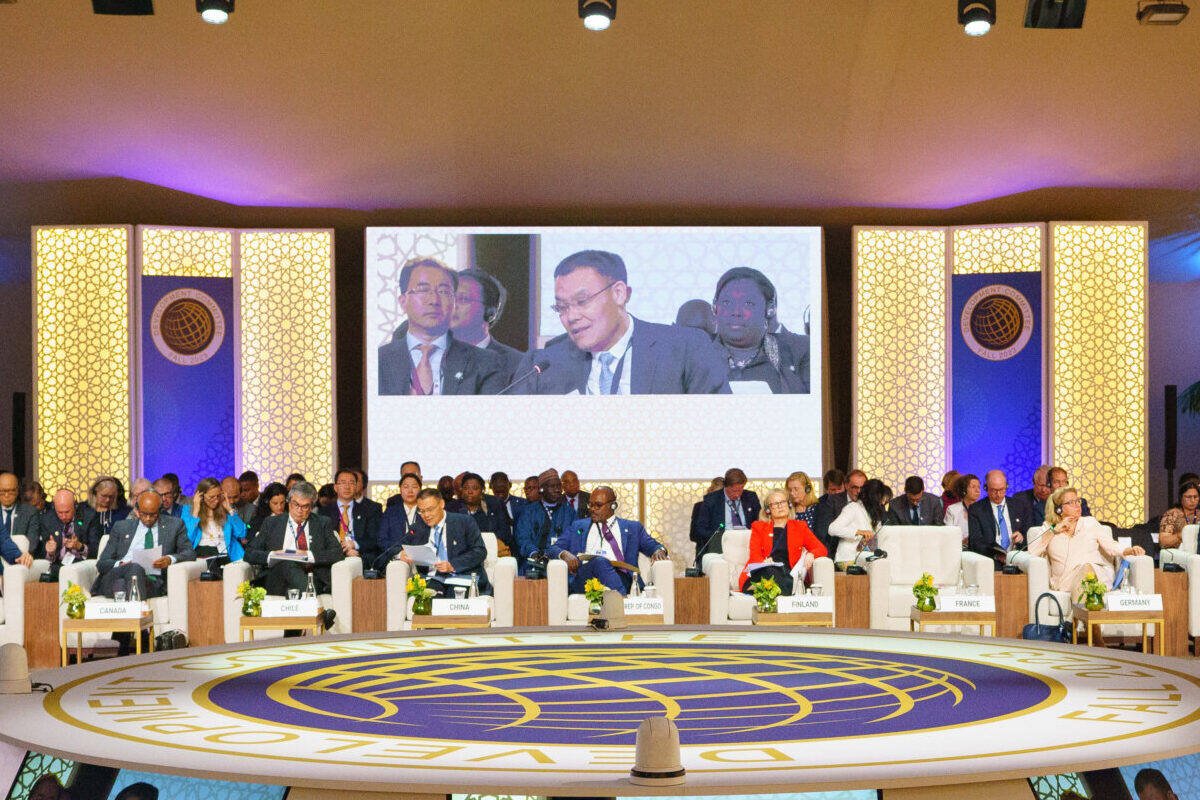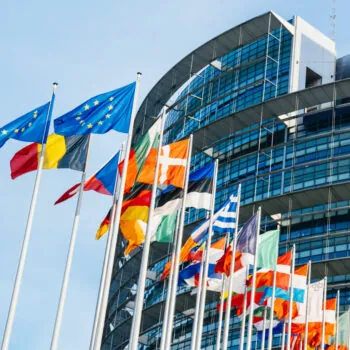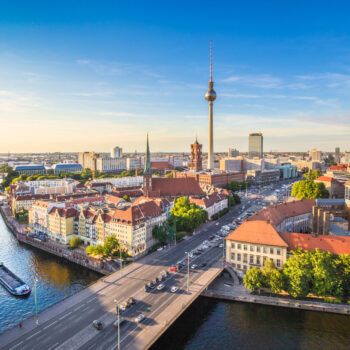In 2021, amid a global pandemic, Barbadian Prime Minister Mia Mottley set out a vision for transforming the global economic and financial system to enable developing countries to achieve climate resilient development. She made her pitch at the Glasgow UN Climate Conference where governments negotiate global climate agreements but have little scope to shape global financial governance. Last week in Marrakech, against a new backdrop of geopolitical tension and conflict, the Annual Meetings of the world’s economic governance institutions showed Prime Minister Mottley’s ambition has shifted the political window for good.
Finance ministers, development bankers, investors and civil society gathering for the World Bank and International Monetary Fund Annual Meetings sent a clear vote of confidence in transforming the global financial architecture. Unlike previous years under the leadership of the ex-World Bank chief unconvinced by climate science, action to address climate risks and cut greenhouse gas emissions was central to almost every conversation.
The Development Committee of the World Bank and International Monetary Fund endorsed a suite of technical reforms to stretch balance sheets towards a bigger, better development finance system. They finalised a review of the system’s mandate – to deliver on the twin poverty and climate challenges. New bank President Ajay Banga announced plans to open up more concessional lending for projects that achieve global goals like climate change action, and plans to open up the Multilateral Investment Guarantee Agency (MIGA) to other development banks, a move that will help them mobilise more private sector finance.
IMF managing director Kristalina Georgieva launched the organisation’s response to calls for more equal global representation for developing countries in global financial decision making by creating a 25th chair at the Executive Board for sub-Saharan Africa. A new initiative created by the World Bank with Japan, Canada, Italy, Korea, and the UK speaks to calls for a new approach to partnership between finance providers and developing countries around building out the value chain from clean technology materials to scale up local economic opportunities, rather than just extracting minerals to broaden supply chains for clean technology development beyond China. The broader group of Multilateral Development Banks outlined their commitment to work better together and adopt the balance sheet stretching reforms that alongside more capital injections could unlock $300-400 billion in additional lending room over the next decade.
So far, so promising.
One big problem: no new capital was actually put on the table. The political will to stretch the balance sheets and use capital more effectively behind country platforms and plans is only part of the solution. It won’t be enough to reach the $1 trillion a year in external financing needed to fund climate transitions in emerging markets and developing countries.
A group of experts reporting to the newly expanded G20 presented a pitch on the next suite of reforms and capital injections that could get closer to the even bigger, better and bolder development bank system needed. In their meetings on the sidelines of the Marrakech gathering, G7 finance ministers did hint at a willingness to fund the IDA capitalisation and G20 – now G21 with the African Union – finance ministers pointed to the need for a broader capital increase. Some shareholders made promises to shore up the IMF’s poverty reduction and growth trust fund. But the only significant new capital put on the table this year was a pledge from Germany to buy 300 million euros in hybrid capital that could leverage up to eight times that amount in the private sector investments.
The political consensus to transform these institutions and their governance to fund climate resilient development has nonetheless been a stunning shift from past iterations of these meetings. It has been the culmination of an impressive thread of political championship starting with Mia Mottley’s Bridgetown Initiative, picked up by French President Macron in the roadmap coming out of the June Summit on a New Global Financial Pact, broadened by President Ruto and the African Unit at September’s Africa Climate Summit, and underpinned by a reinvigorated Climate Vulnerable Forum V20 group, which Mia Mottley has nominated Barbados to lead from next year.
This political space to push for significant reforms to global finance architecture stemmed from shifts in the geopolitical order. Currently, neither China nor the West are ready to put their money on the line to gain the upper hand. The power of small states and developing countries has grown in this vacuum of leadership, and their agendas for a fairer multilateralism are successfully shaping global governance fora.
But the gaps in finance remain stark. To get the pace and scale we need, more leader level direction is necessary.
Enter COP28, full circle from Mottley’s Glasgow pitch. Climate negotiators will be aiming to agree on how the global community responds to the Global Stocktake – the assessment of progress against the Paris Agreement’s emission cutting, adaptation, and financing goals. It is no surprise to anyone that the stocktake shows the world is far off track from all three. The Leaders’ Summit at the beginning of the two-week conference will be a major chance to concretise the global financial architecture reform agenda from political will into a political pathway for delivering reforms and new capital.


